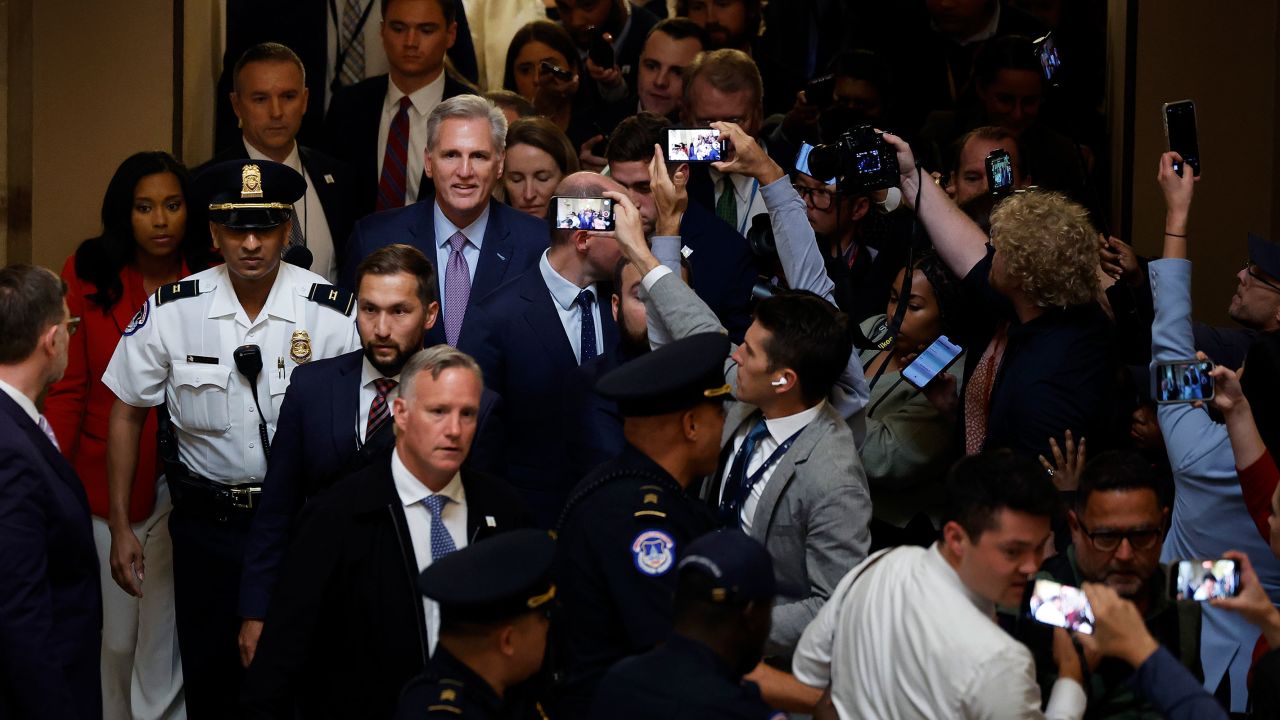Unity in Discontent: Understanding Bipartisan Support to Oust Kevin McCarthy as Speaker
In the realm of American politics, where bipartisanship is often a rare commodity, a remarkable event transpired that raised eyebrows and sparked intense debates. The question on everyone’s mind was, “Why was there bipartisan support to oust Kevin McCarthy as Speaker?” In this blog post, we explore the complex factors and shared concerns that led both Republicans and Democrats to unite in a pivotal decision that sent shockwaves through the corridors of power.
The Cracks in the Leadership
The discontent within the Republican Party had been simmering for quite some time. Members from both sides of the aisle found common ground in their dissatisfaction with McCarthy’s leadership style and decision-making processes. The bipartisan consensus emerged from shared concerns about the direction in which McCarthy was steering the House, coupled with reservations about his ability to unify a deeply divided Congress.
Disagreements on Policy Priorities
One of the key issues that drew bipartisan criticism was McCarthy’s approach to crucial policy matters. There were stark differences in priorities, ranging from economic policies to social issues. Democrats and even some Republicans felt that McCarthy’s decisions did not align with the nation’s urgent needs, prompting a coalition of the dissatisfied to form.
Concerns Over Bipartisanship
Surprisingly, bipartisan support to remove McCarthy also stemmed from concerns about his willingness to work across party lines. While cooperation between parties is often encouraged, some members perceived McCarthy’s bipartisan efforts as a deviation from core party values. This discordance raised doubts about his ability to represent the Republican Party effectively.
Leadership Style and Decision-Making
The manner in which McCarthy exercised his leadership became a point of contention. Both parties voiced concerns about transparency, inclusivity, and the democratic process within the House. These concerns, shared by a diverse group of representatives, underscored a broader dissatisfaction with McCarthy’s approach to leading the House.
The Message of Bipartisanship
The bipartisan support to oust McCarthy was not just about removing a leader; it was a powerful message. It demonstrated that, despite their ideological differences, members of Congress could unite when they believed that the fundamental principles of democracy and effective leadership were at stake. This rare display of unity sent a clear message: accountability knows no party lines.
Conclusion: A Turning Point in American Politics
The bipartisan support to oust Kevin McCarthy as Speaker marked a significant moment in the contemporary political landscape. It highlighted the nuanced dynamics within the Republican Party, as well as the bipartisan nature of discontentment. As the nation reflects on this event, it stands as a reminder that unity, even in dissent, can shape the course of American politics, setting new standards for accountability and leadership in the halls of power.





